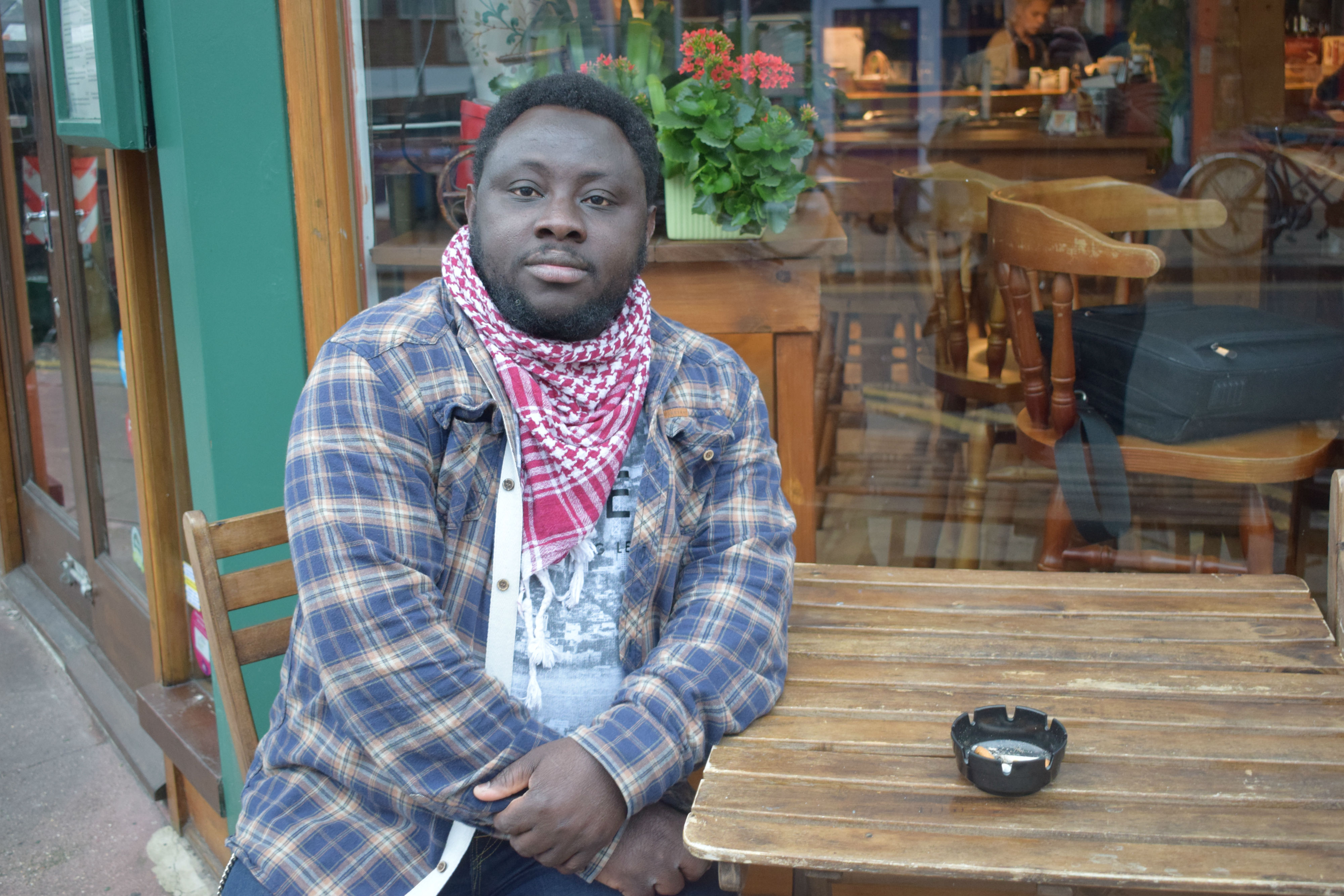
‘I went on a suicide route’: What happened after a Sussex grad was nearly deported by the Home Office
In 2015, Luqman Onikosi’s application to remain in the UK on medical grounds was terminated
In March 2016, Sussex University made national news when a group of students occupied Bramber House located in the centre of Sussex campus to protest against the treatment of Luqman Onikosi. Luqman was Sussex masters student who was threatened with deportation back to his country Nigeria when his student visa expired in 2011.
Luqman case was especially sensitive as he contracted Hepatitis B in 2008. This illness was shared with his two brothers who had died from the symptoms in 2011 and 2012. His illness was not fatal if he were to receive treatment that was available in the UK, however, if deported to Nigeria the treatment would cease and Luqman could potentially die.
The uni student entered the UK in 2007 to study for his undergrad at Sussex. Once he had graduated in 2010, he began to work at the Nigerian embassy, but returned back to Sussex in 2014 to study for his masters. However, Luqman was dealing with chronic depression from the death of his siblings. He became, in his own words, self destructive and felt that the cure for his mental health was not through medication, but through education. In May 2015, his application to remain in the UK on medical grounds was terminated.

Luqman joined Sussex because of its radical background, especially surrounding the topic of social justice. He explained: “Sussex prides itself on social justice and the idea goes back to the works of the academics who work here. Not the administrative staff but the lecturers and teachers here at Sussex, most pride their work on the understanding of social justice.” However, for Luqman in his case, social justice was an “illusion”.
Not only has he been threatened with deportation since May 2015, the University of Sussex had not informed Luqman that they terminated his student status in July that same year. This led to Luqman to continue writing and studying for his dissertation, which the university has still yet to mark and award to him. During this time, he said: “Every month the university writes to me to say they have spoken to the Home Office to let me know I can stay in the UK. The anxiety you carry waiting for what the Home Office is going to say. On one hand you are studying and the next you don’t know if you are going to be kicked out.”
Mr Onikosi has expressed a deep anger at the academic community stating that it was “disgrace” that they did little to speak up for him even though they had a duty to protect their students. As keepers of the norms and values of society, he concluded that it was the fault of a capitalist society which blackmailed the academic community with threats of contract termination as the cause for their absent campaigning.

He continued: “The commodification of education has seriously skewed our view about how we measure our worth. Education has become more of a privilege and students are becoming cash cows. When a institution bases itself on these lines and an outside authority tells them to abide by their ruling or you lose your license, you ask “hmm, what is in it for me?” Is it easier to fight for this student or agree and back off? It is always about follow the money.”
When asked what influence the academic community actually has, he replied: “If you produce knowledge that you pass onto a child or a person in a classroom you have a huge influence of what can be accepted or not. Academics can give out awards to celebrities and praise them for their humanitarian work but in their own communities they are seriously failing. Academics in Sussex have remained deathly silent.”
The haphazard way in which Luqman’s case was handled highlighted an issue bigger – the view that international students, as Luqman puts it, only have worth in a economic sense and once the ‘cash cow’ has been well and truly milked does the government throw you away.

Luqman was at the centre of national and local scrutiny. Acknowledging the many arguments against his case including accusations of health tourism, he told of how people saw him as a “leech”, despite living in the UK for a number of years, contributing taxes and visa payments. Luqman told us: “I have to constantly justify why I am here and it is tiring. I am not here to be a tourist, I want to be a part of British society.”
His personal health has been deteriorating since February last year with the pressure and anxiety amounting up to an extreme attack on his mental health. In October 2016, Luqman attempted suicide at his home but was prevented by police. “In October 2016, I went on a suicide route. I overdosed, I wrote a note, and I turned off my phone. I put my bed against my door to prevent anyone from coming in and the police had to break it down to save me”, he said.
Now 36 years of age, Luqman still lives in Brighton on ‘Temporary Admission’ or on a ‘IS96′ that came as the result of the nation wide interest of his case. Recently married in November 2016, he expressed his admiration for his Russian wife who he met online. “She is my rock and I do not know what I would do without her”, Luqman added.
The Sussex Students’ Union supported Luqman and believed he should not be threatened with deportation. Rose Taylor, Postgraduate Education Officer for Sussex commented: “Luqman Onikosi has been a valued member of the student and academic community at Sussex for the past eight years. Since coming to the UK in 2007 he has studied for two degrees at Sussex, given a huge amount of time and energy to the Students’ Union and has recently been conducting some exciting research into Decolonizing Education at Sussex.
“The Home Office’s decision to deport Luqman to a country which cannot provide him with the care he needs to stay alive is inhumane and cold-hearted.”
The University commented: “We are, and have always been, very sorry to know of Mr Onikosi’s illness. The status of Mr Onikosi’s visa is a directive from the Home Office, and the university is not able to influence that decision in any way.”
The Sussex graduate now campaigns with similar cases around the UK and wishes to bring light to students who were mishandled as he was.









































